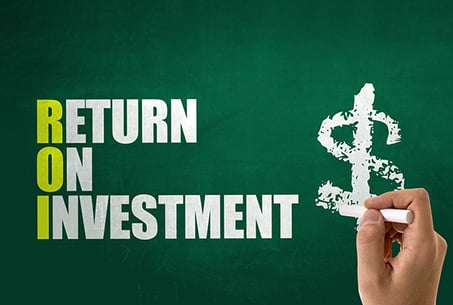What’s the Return on Investment of a Fatherhood Program?
2 min read
Date Published: 01/14/2020
Last Updated: 01/14/2020
National Fatherhood Initiative Blog / Latest Articles
2 min read

If I asked you to estimate the monetary return on investment (ROI) of a fatherhood program, what would you say it is?
If you’re savvy, you might wittily answer my question with this question: Return on investment for what or whom?
The answer to that retort was the subject of a recent study funded by the Fatherhood Research and Practice Network, the outstanding, and just completed, five-year research and evaluation initiative funded by the Administration for Children and Families at the U.S. Department of Health and Human Services. Dr. Richard Chase of Wilder Research led the study.
The Study’s Value
Dr. Chase states that the report on the study:
“…provides and applies a framework for estimating the potential monetary value of non-resident father engagement, which broadly includes participating in Responsible Fatherhood programs, performing positive parenting behaviors and interactions with their children in activities that promote healthy child development, and enrolling their children in high quality early childhood education.”
I won’t bore you with the details of the model and data Dr. Chase used to calculate the ROI—or “monetary value”—of responsible fatherhood programs. Read the report. But, suffice it to say, it’s one of the few and one of the most robust ROI studies of responsible fatherhood programs that I’ve seen.
If you run or want to start a fatherhood program, it’s value for you is in its potential to position a fatherhood program for funding from public and private sources. If you fund or want to fund a fatherhood program(s), its value for you is in its potential to argue for continued or new investing in fatherhood programs.
It is also, according to Dr. Chase:
“…the first attempt to monetize the economic returns and avoided costs of a broad set of potential, two-generation, long-term child development and family well-being outcomes of responsible father engagement.”
That aspect of the study holds potential value if you want to integrate a fatherhood program(s) within a two-generation (2Gen) effort, an area of increased interest among funders of parenting and child well-being interventions.
2Gen ROI
Dr. Chase estimated the total potential ROI of responsible fatherhood programs per father and per child. He included a range of outcomes (benefits and cost savings) for one father served and one child impacted by a father’s participation in a responsible fatherhood program. Examples of outcomes include:
All totaled, the study included six outcomes per father and 14 outcomes per child.
The bottom line?
The total ROI per father is nearly $177,000. The total ROI per child ranges from $85,000 to $95,000.
Not shabby, are they?
I encourage you to download, read, and share the report. Most important, if you run or want to run a fatherhood program, I encourage you to use this study to acquire funding for and to broaden your funding base. Too few programs have such a base to sustain themselves. If you are in a position to fund fatherhood programs, I encourage you to use this study to convince purse-string holders that investing in fatherhood programs is a wise use of funds. (Pay particular attention the study's limitations should you use the results of it for either purpose.)
Have you thought of estimating the ROI of your fatherhood program? (Click here to read a previous post in this blog about the value of doing so, and an organization that can help.)
Date Published: 01/14/2020
Last Updated: 01/14/2020
Download this free guide for a proven 7-step roadmap—from making the case and securing funding for your program, to launching and measuring real results!


Train Your Staff
Fatherhood Programs
Fatherhood Data
© 2026 National Fatherhood Initiative®. All rights reserved.